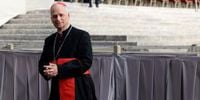The Roman Catholic Church has a new pope: Leo XIV. Elected on May 8, 2025, Cardinal Robert Francis Prevost from the United States has made history as the first American to lead the church. His election follows the death of Pope Francis on April 21, 2025, and marks a significant moment in the 2,000-year history of the papacy.
Pope Leo XIV, at 69 years old, brings a wealth of experience and a unique background to the Vatican. Born in Chicago and a graduate of Villanova University in 1977, he became a priest just four years later. His rise within the church culminated in his appointment as a cardinal by Pope Francis in September 2023, a role that positioned him as a leading candidate for the papacy.
The conclave that led to his election was notable for its brevity. Lasting only two days, it is one of the shortest conclaves in recent history, with only two previous instances where a pope was elected in such a short time: Pope Benedict XVI in 2005 and Pope Francis in 2013. This rapid decision-making reflects a growing urgency within the church to establish leadership following the loss of Pope Francis, who was beloved for his progressive views and outreach.
During the conclave, 133 cardinal electors participated in the voting process, the most ever for a papal election. To reach a two-thirds majority, at least 89 votes were necessary. The cardinal electors, primarily from Europe, included 16 from North America, consisting of 10 from the United States. The overall number of cardinals worldwide stands at 252, with 135 eligible to vote due to age restrictions, as only those under 80 can participate in the conclave.
Despite the large number of eligible electors, only 131 participated in the voting, as two cardinals cited health reasons for their absence. The majority of the electors hailed from Europe, with 17 from Italy, five each from Spain and France, and others from Central America, South America, Africa, Asia, and Oceania. This diverse representation underscores the global nature of the Catholic Church.
As Pope Leo XIV, Prevost has chosen a name that holds historical significance, ranking fifth in popularity among papal names. The most common name, John, has been used by 23 popes, followed by Gregory and Benedict, each used 16 times. The choice of name reflects a blend of tradition and a desire to connect with the church's rich history.
Prevost's election comes at a time of significant challenges for the Catholic Church, including declining attendance in many regions, ongoing scandals, and the need for revitalization in its mission. His American background may provide a fresh perspective on these issues, potentially attracting a younger and more diverse congregation.
In his first address as pope, Leo XIV expressed gratitude for the trust placed in him by the cardinal electors and emphasized his commitment to unity and healing within the church. He stated, "We must work together to build a bridge that connects all believers and fosters a spirit of love and compassion. The church must be a place of refuge for everyone, regardless of their background or beliefs." This message of inclusivity aligns with the progressive vision championed by his predecessor, Pope Francis.
The new pope's leadership style is anticipated to reflect his experience in the United States, a country where the Catholic Church has seen both growth and challenges. His tenure as a cardinal involved significant engagement with social issues, including poverty, immigration, and climate change, which may influence his papacy.
As the world watches the new pope's initial steps, many are hopeful that he will continue the path of reform and openness established by Pope Francis. The Catholic Church, with its vast global reach, faces the task of adapting to contemporary challenges while remaining rooted in its traditions.
With the election of Pope Leo XIV, the Catholic Church embarks on a new chapter, one that could redefine its role in a rapidly changing world. As the first American pope, Prevost's leadership may signal a shift towards a more inclusive and globally minded church, ready to engage with the complexities of modern society.
As we move forward, it will be essential to observe how Pope Leo XIV addresses the pressing issues facing the church and whether he can foster a renewed sense of unity and purpose within the global Catholic community. The world looks on with anticipation as the 267th pope begins his journey, hoping for a transformative impact on the church and its followers.

